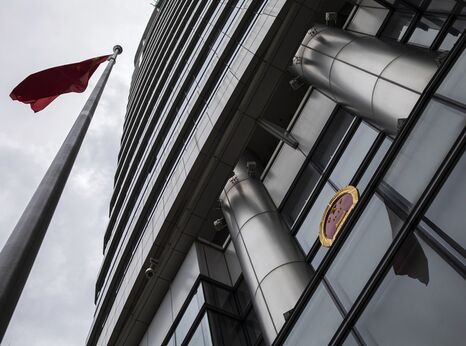12 Hongkongers held incommunicado in China

CHENG Tsz-ho (鄭子豪), CHEUNG Chun-fu (張俊富), LIU Tsz-man (廖子文), QUINN Moon (喬映瑜), TANG Kai-yin (鄧棨然), LI Tsz-yin (李子賢), LI Yu-hin (李宇軒), WONG Wai-yin (黃偉然) and four other individuals were intercepted by coast guard officers from mainland China after leaving Hong Kong on a speedboat on 23 August 2020. They were subsequently placed in detention on suspicion of the criminal offence of “secretly crossing the border”.
A family member of one of the detained individuals has said that right after the 12 were arrested, he tried to contact different departments of the Hong Kong government to get more information about the arrest. All the departments told him that there was little they could do. The family member said he felt that the Hong Kong government pushed his requests away and did not provide any assistance. According to an article by Hong Kong ‘s Secretary for Security John Lee and a government response to a media inquiry about the alleged violation of the rights of the 12 individuals, the Hong Kong government has no intention of interfering with “the law enforcement of other jurisdictions”.
Amnesty International has documented numerous cases in which detained individuals in mainland China, many of them human rights defenders, have been routinely deprived of their right to see lawyers that they or their families have chosen to represent them. In some instances, the authorities have appointed lawyers for detainees without their consent or consent of the family. In other cases, the authorities threatened lawyers to drop cases, claimed that detainees dismissed family-hired lawyers without producing any proof or stopped families from hiring lawyers – all of which effectively amounts to depriving the detainees’ of their right to legal representation. Individuals deprived of legal representation of their own choice are often denied access to information about their legal rights, making them more vulnerable to unfair legal procedures.
One of the 12 detainees, LI Yu-hin, reportedly left Hong Kong to seek asylum after he was arrested for “possessing ammunition without license” and “colluding with foreign or external elements to endanger national security”. LI is among the 22 activists and protesters who have been arrested for violating the Hong Kong national security law so far since its enactment on 30 June 2020. The United Nations human rights office and expert bodies have repeatedly expressed concerns about the national security law, stating the broadly worded legislation can lead to “discriminatory or arbitrary interpretation and enforcement which could undermine human rights protection”. Some among the 22 arrested individuals are accused of endangering national security solely for acts of peaceful expression, such as possessing banners with political slogans or posting on social media platforms. According to international human rights law, “national security” cannot be invoked to deny people the right to express different political views and to exercise their other human rights as protected by international legal standards.
Before being arrested and detained in mainland China for “secretly crossing the border”, 11 of the 12 individuals were arrested in Hong Kong for a range of alleged offences, including conspiring to wound with intent, rioting, assaulting a police officer, conspiring to commit arson, possessing a substance with intent to destroy or damage property, making an explosive substance, committing arson with intent and conspiring to commit arson with intent.